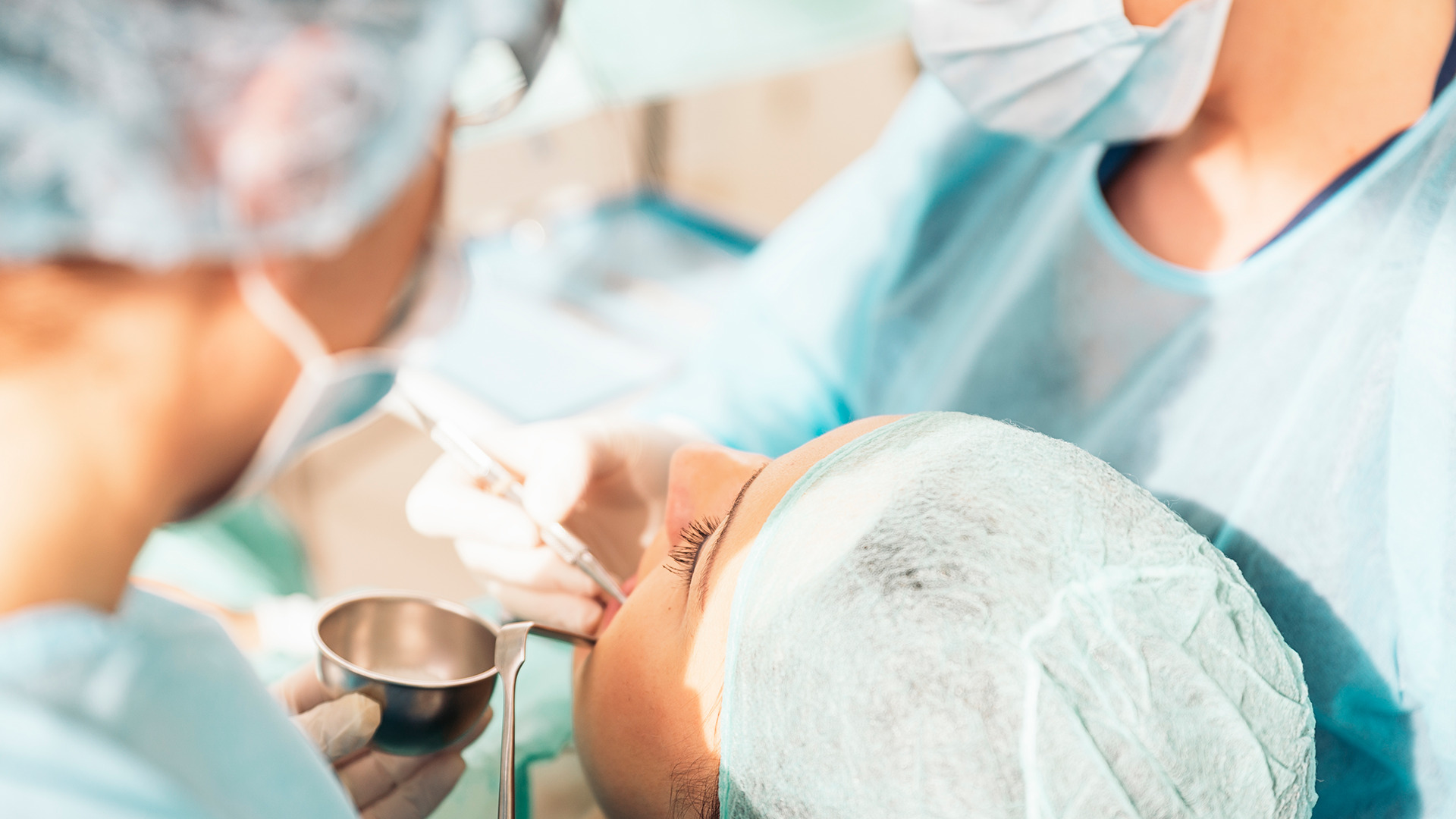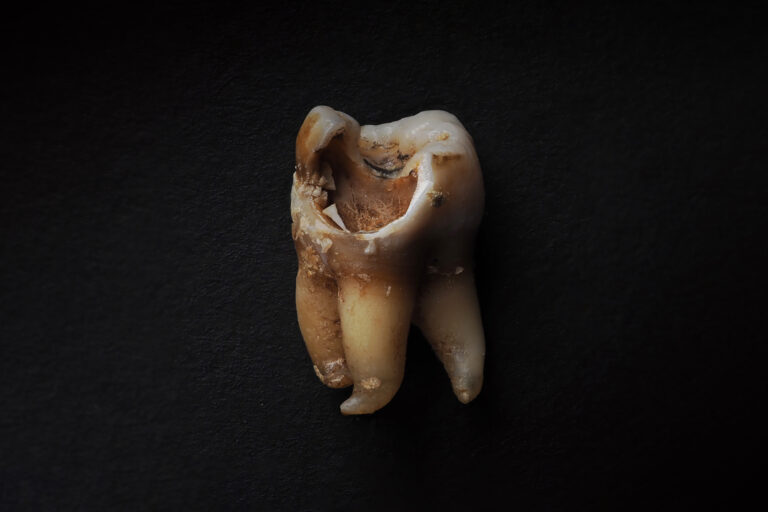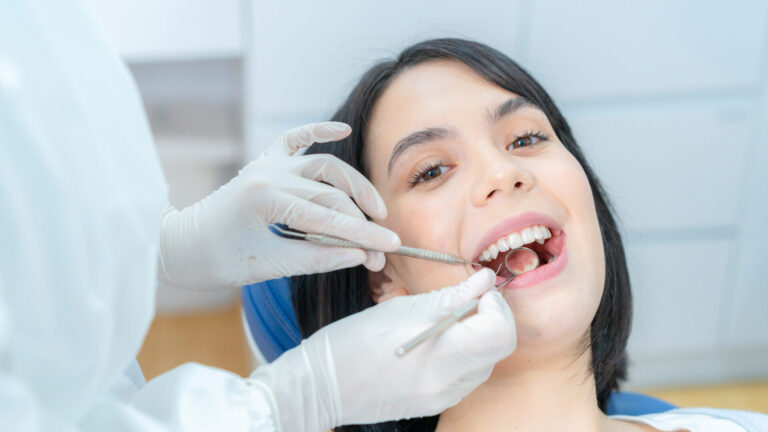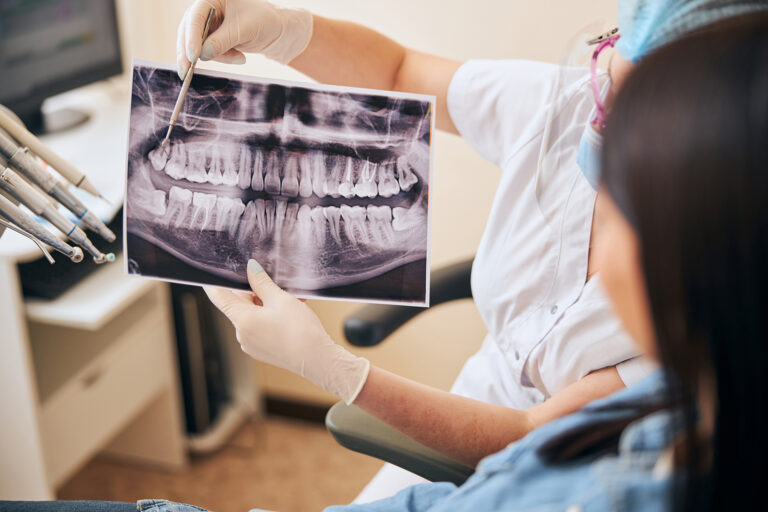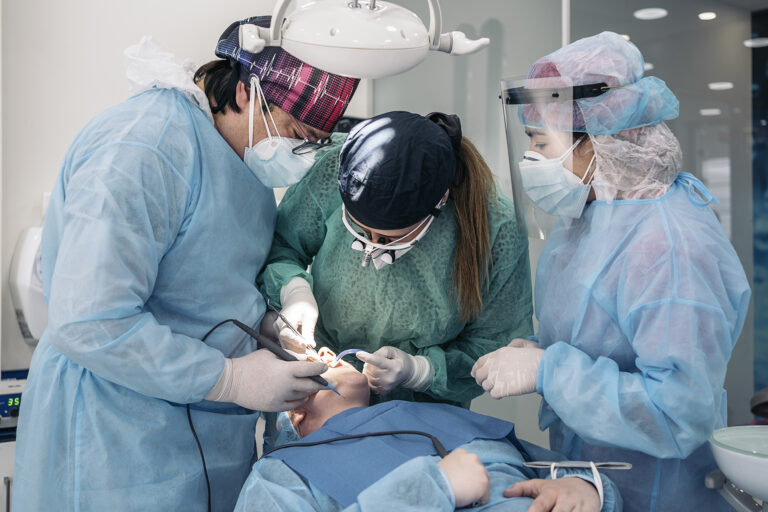Wisdom teeth, or third molars, are the farthest back molars in the mouth and usually don’t show up until late or early adolescence. Frequently misaligned, these teeth can be challenging to maintain and impact your oral health. Wisdom tooth extraction is a complex surgical treatment that dentists often recommend. The initial consultation and surgery typically take place at a dental clinic.
Roughly 70 per cent of people between 20 and 40 years old in Singapore have an impacted tooth. Even with the high percentage, is it important to have your wisdom teeth removed? What are the benefits of extracting an impacted tooth?
A wisdom teeth extraction is a surgical procedure to remove impacted wisdom teeth that cannot be removed non-surgically. A dental surgeon performs a wisdom tooth extraction in Singapore to remove the four impacted permanent adult teeth located at the back of the mouth. This helps reduce the risk of infection or other dental issues, such as tooth decay (caries). If you’re experiencing wisdom tooth pain, then you’ll likely need to have them surgically extracted.
Most often, wisdom tooth extractions are performed under local anaesthesia. In some cases, wisdom tooth pain can be immense. In these cases, intravenous sedation can be provided when a patient feels highly anxious about the procedure.

Introduction to Wisdom Teeth
Wisdom teeth, also known as third molars, typically erupt in the late teens or early twenties. Most adults have 32 permanent teeth, including four wisdom teeth, which are located on the upper and lower jaws.
However, due to the smaller size of modern human jaws, many people lack sufficient space for their wisdom teeth to erupt properly. This lack of space often leads to impacted wisdom teeth, which can cause a variety of problems, including tooth decay, gum disease, and painful gum inflammation. Regular dental check-ups are crucial for monitoring the development of wisdom teeth and determining if wisdom tooth removal is necessary to maintain good oral hygiene and overall dental health.
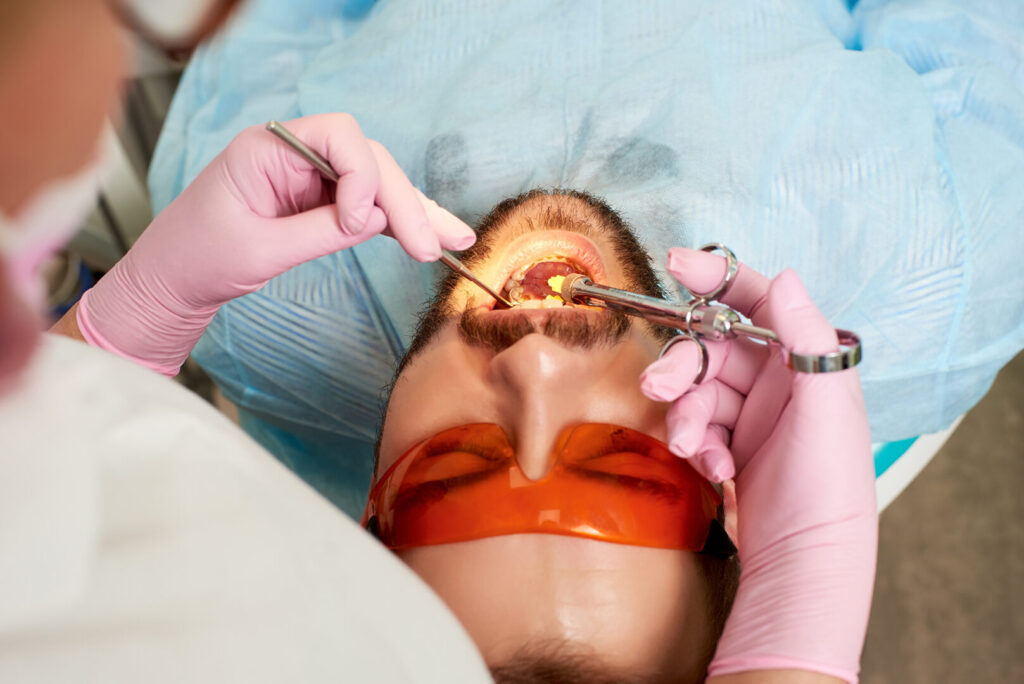
Should You Remove Impacted Wisdom Teeth
Wisdom teeth typically emerge in late adolescence or early adulthood. In some cases, wisdom teeth may not have enough room to emerge and get stuck beneath the gum tissue, often growing sideways – a condition known as impacted wisdom teeth. Insufficient space in the jaw bones can lead to impacted wisdom teeth, which may cause various dental issues.
Impacted wisdom teeth can cause a range of problems, including pain, inflammation, infection, and the formation of fluid-filled cysts. While an impacted wisdom tooth may not initially cause problems, it can lead to serious complications.
If the tooth is not removed, a benign tumour, for example, could develop in the jaw. A dentigerous cyst is a little bulge that may appear without your knowledge. Benign cysts often have no symptoms when small, but they can trap food and bacterial plaque between the tooth and the overlying gums, thereby increasing the risk of caries and gum disease. Additionally, if you frequently experience sinus infections, it may be due to pressure from an impacted upper wisdom tooth.
If your dental surgeon recommends, impacted teeth are best removed before they cause long-term damage to your oral health.

Reasons for Removal
There are several compelling reasons why wisdom teeth may need to be removed. Impacted wisdom teeth can cause severe discomfort and pose significant problems to surrounding teeth. If left untreated, these impacted teeth can lead to tooth decay, gum disease, and even the formation of cysts or tumours.
Additionally, wisdom teeth that erupt in a misaligned manner can push other teeth out of alignment, negatively impacting your appearance, bite, speech, and oral hygiene. Orthodontic treatments can be compromised if impacted wisdom teeth are not removed. Removing these problematic teeth can prevent future dental issues and alleviate pain.

What You Should Know About Wisdom Teeth Removal
Before you truly appreciate the benefits of wisdom teeth removal, understanding the basics of these third molars is essential to deciding when they should be removed.
The wisdom teeth are the last to erupt among the molars. They enter near the region where your jaw hinges together at the back of your mouth. Wisdom teeth often erupt around the age of 20.
Our dental team may not always recommend extracting patients’ wisdom teeth, as the surgical procedure may be unnecessary in some cases. If not done properly, the removal of wisdom teeth can cause immense discomfort, especially if the wisdom tooth surgery isn’t required in the first place.
You can avoid wisdom tooth extraction pain if you have healthy teeth. Further, if wisdom teeth erupt and your jaw has enough room, your chewing may benefit. However, most people do not have enough space in their jaw for their wisdom teeth to erupt without pain or discomfort.
Most wisdom teeth extractions are performed under local anaesthesia. Wisdom teeth extractions are common, but they are a highly complex surgical procedure that requires a qualified dental surgeon to perform. Wisdom tooth surgery is typically an outpatient procedure, allowing patients to return home the same day.
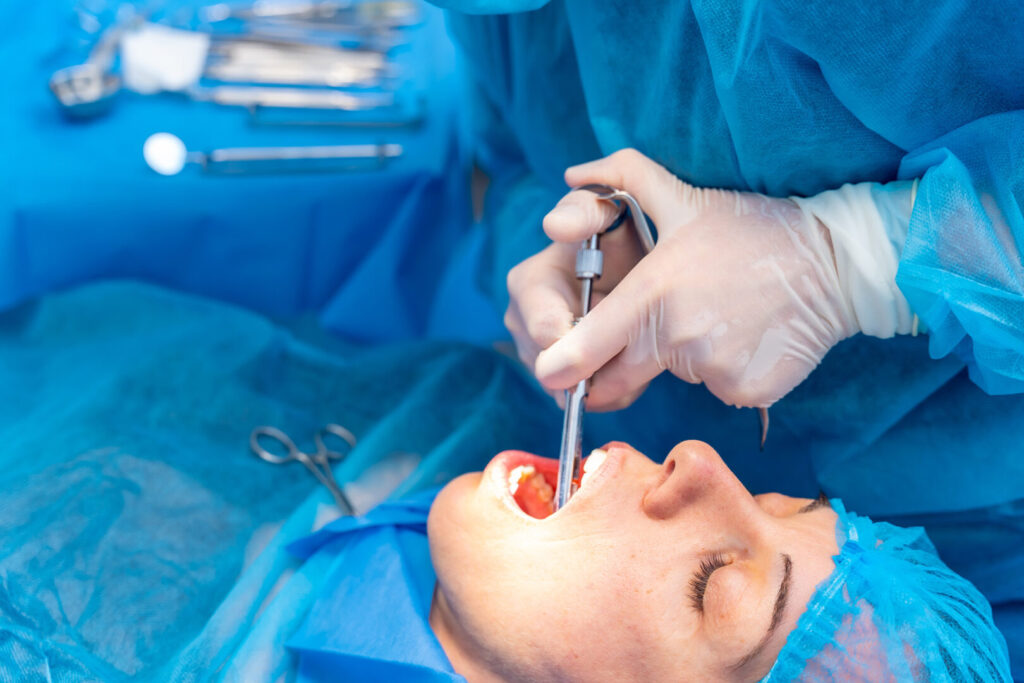
Benefits of A Wisdom Tooth Extraction
A wisdom tooth extraction procedure is necessary when the impacted wisdom tooth negatively affects the surrounding soft tissues, resulting in repeated infections of the tooth or adjacent teeth. Extracting the wisdom tooth will remove the source of pain and alleviate the risk of infection to the neighbouring teeth.
Additionally, applying an ice pack externally to the face in short intervals during the initial recovery period can help manage pain and reduce swelling after surgery.
The decision to remove a wisdom tooth can seem unpleasant, but it may save you time and money in the long run. Here are five reasons why:
- Decrease Risk of Dental Caries. Maintaining proper oral hygiene around impacted teeth can be difficult. As food, plaque, and harmful bacteria can get stuck between impacted or erupted teeth, removing a wisdom tooth can reduce the risk of dental caries in the adjacent molars.
- Relieve Headaches. The other teeth are already developed and in place as the wisdom teeth emerge in late adolescence. Wisdom teeth will try to push other teeth out of the way if there isn’t enough room in the jaw. This intense pressure on the teeth can cause excruciating headaches, which can be relieved by removing the teeth.
- Avoid Periodontal Disease. When your teeth shift in the mouth, it can make brushing or flossing difficult. This uneven space serves as a hiding place for harmful microorganisms that can cause periodontal disease if not treated promptly, leading to tooth damage and even the loss of an essential permanent molar.
- Reduce the Chances of Oral Infection. As your wisdom teeth grow in and push other teeth, your mouth may be prone to infection. Early removal of wisdom teeth can help lower the likelihood of bacterial infections. The discomfort in your mouth from all of the pressure may be so intense that you don’t recognise that you have an infection immediately.
- Avoid Damaging your Jaw Bacteria. Can thrive in impacted wisdom teeth, leading to cysts or tumours that enter the jawbone and cause severe temporomandibular joint pain that will require treatment from a TMJ specialist.
When your wisdom teeth finally emerge, they can cause intense pain. This is why it’s essential to schedule routine dental examinations, allowing your dentist to prevent complications that can lead to infections or diseases. The blood clot that forms in the tooth socket after extraction is crucial for proper healing and wound closure. Avoid activities that can dislodge this clot, such as vigorous rinsing or using straws, to prevent painful complications like dry socket.
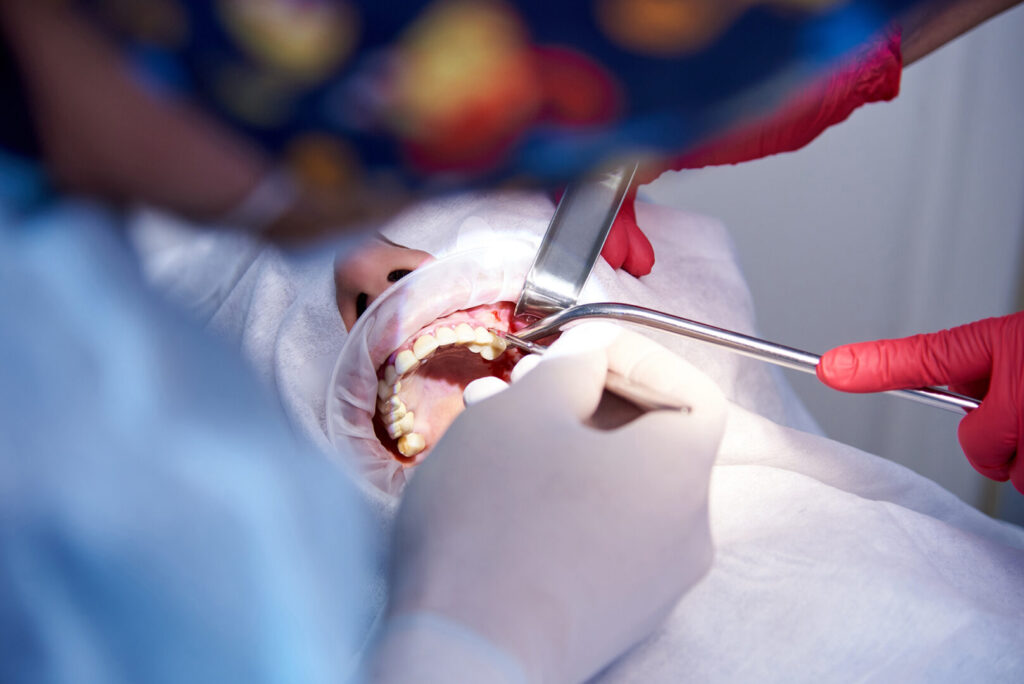
Preparation for Surgery
Proper preparation is essential before undergoing wisdom tooth surgery. Your dentist or oral surgeon will provide specific instructions to ensure you are ready for the procedure. It is recommended to have a good meal before the surgery and to brush and clean your teeth thoroughly to reduce the risk of infection.
Arranging for someone to take you home after the surgery is also important, as the effects of anaesthesia can leave you feeling disoriented. Additionally, you should avoid strenuous exercise, smoking, and drinking through a straw for a few days before the surgery. Maintaining good oral hygiene is crucial for preventing infections and promoting a smooth healing process.
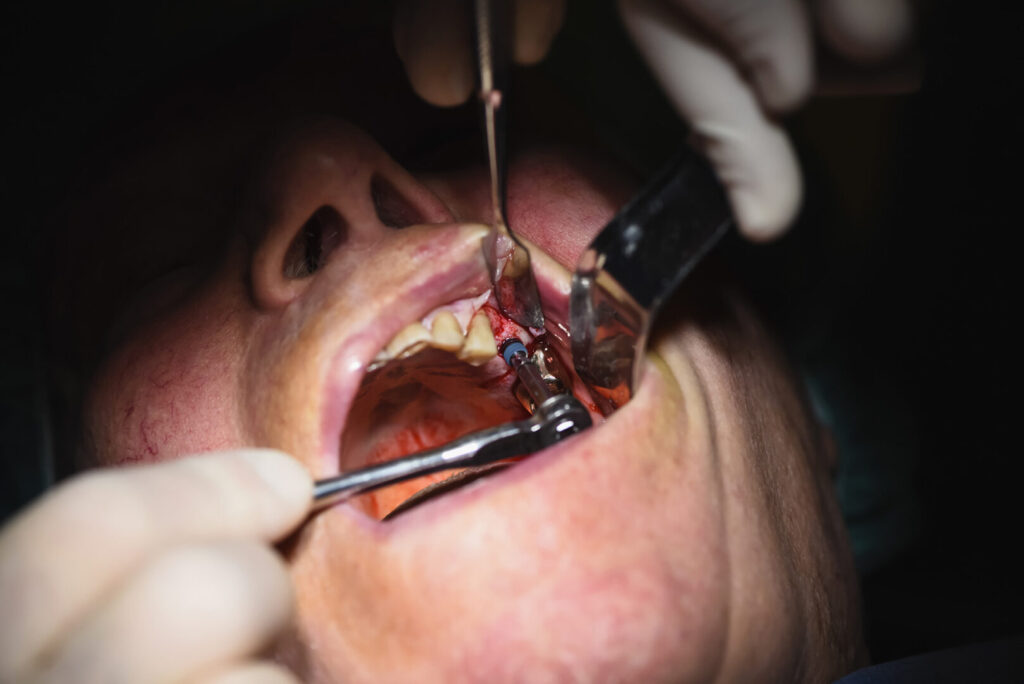
The Process of Wisdom Tooth Removal
Our dentist will discuss your treatment options with you to identify potential risks and the cost of wisdom tooth removal in Singapore before the procedure begins. Once we have discussed your options, our dentist will anaesthetise the area with local anaesthesia to numb it and extract the wisdom tooth safely. Our clinic applies a surface numbing gel before the local anaesthetic injection to give almost pain-free analgesia.
At any time, please don’t hesitate to discuss your concerns about analgesia with your dentist, so we can make your experience as comfortable as possible.
Once the tooth area is numb, our dentist will access the impacted wisdom tooth through an incision in the gum. Surrounding bone may also need to be removed with surgical drills. You shouldn’t feel any pain during the procedure, but you may feel some pressure or vibrations from the surgical tools.
Your wisdom tooth may need to be extracted in multiple pieces. The dentist will cut into the surrounding gum to expose the tooth and bone. Using specially designed hand instruments, pressure will be applied from various sides of the tooth to deliver the crown and roots, whether in whole or in pieces.
Once the entire wisdom tooth is out, the site will be checked and washed to ensure it is clean. A pack will be placed to clot the blood, and the area will receive stitches to aid in the healing process.
Our dentist will provide detailed after-care instructions for how to optimise your healing, along with a prescription for mouthwash and analgesics. We’ll schedule a follow-up appointment 7 to 10 days after the surgically removed wisdom tooth extraction. Our dentist will review your healing progress during the follow-up session and remove the stitches.
If you have any concerns along the way, our dental team, including our dentist and dental assistant, is always available to address your questions and concerns.

Post-Surgery Care
After wisdom tooth surgery, following proper post-surgery care instructions is vital for a smooth recovery. You may experience minor bleeding, swelling, and discomfort, which can be managed with painkillers and ice packs. Resting for the remainder of the day and avoiding activities that could dislodge the blood clot, such as smoking, drinking through a straw, and eating hot or spicy foods, is essential.
A soft diet, consisting of foods such as porridge, fish, and tofu, is recommended for a few days following surgery. Maintaining good oral hygiene is also important, including rinsing your mouth with warm salt water and brushing your teeth gently with a soft toothbrush. Your dentist or oral surgeon may prescribe pain medications and provide specific instructions on how to care for the stitches to ensure a smooth healing process.
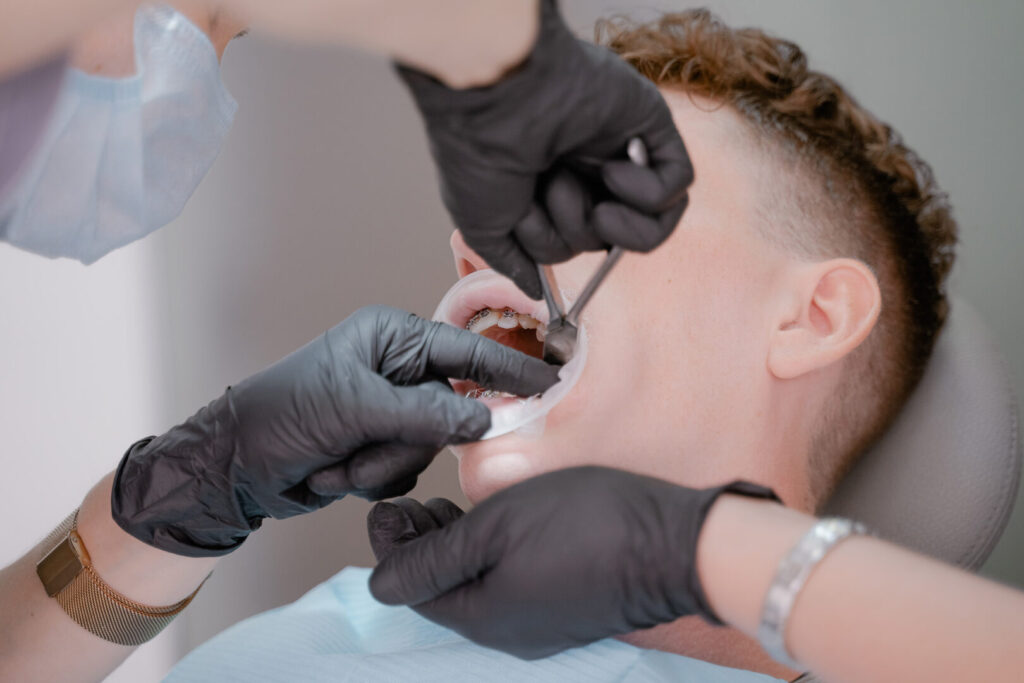
Complications and Risks
While wisdom tooth surgery is generally a safe procedure, it is essential to be aware of the potential complications and risks associated with it.
Common complications include dry socket, infection, and facial swelling. In rare cases, more severe complications such as jaw deformities, temporomandibular joint disorders, and obstructive sleep apnea can occur.
The number of unscheduled visits following wisdom tooth surgeries is significantly lower than international data, indicating a generally low incidence of severe complications. It is essential to follow proper post-surgery care instructions and attend follow-up appointments to minimise the risk of complications. Your dentist or oral surgeon will discuss the potential risks and complications with you before the surgery and guide you on how to prevent them.
Medisave claim is available for wisdom tooth surgery, allowing you to claim between $350 to $950 per tooth, depending on the complexity of your treatment.
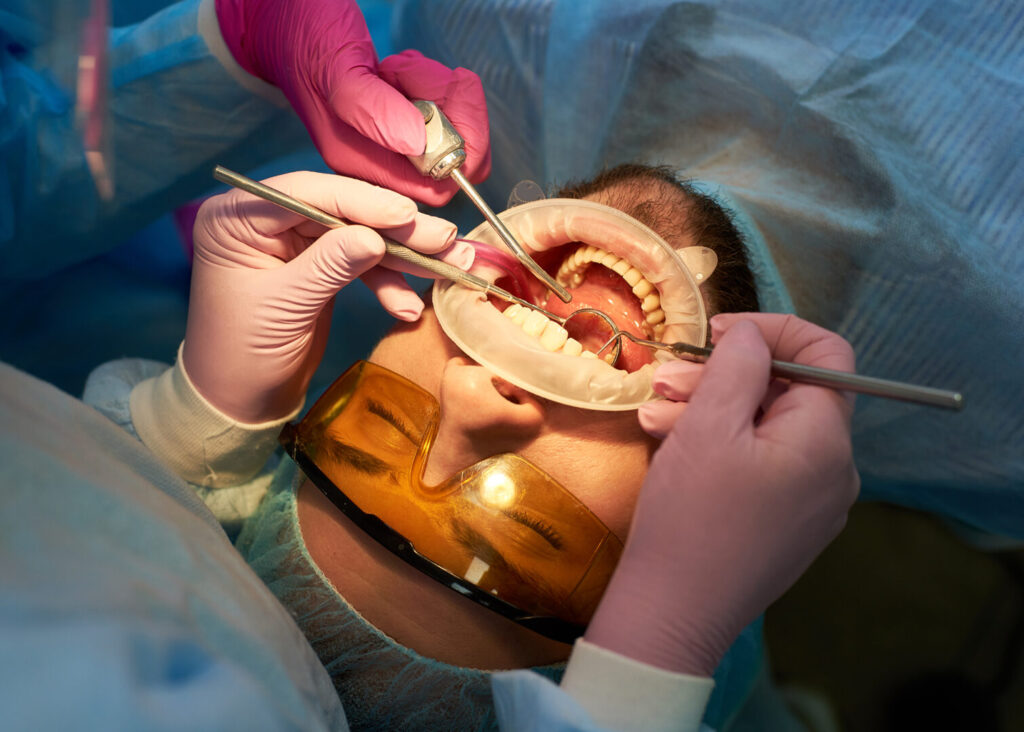
Wisdom Tooth Extraction Cost
Visiting your dentist every six months or as recommended allows your dentist to check for the development of bacteria, loosened gums, or tooth decay in your wisdom teeth. Dentists can also use X-rays to ensure that no cysts or tumours are forming behind the gums.
Wisdom tooth surgery is a complex procedure, and proper extraction requires highly technical expertise. Depending on the case and its complexity, our non-surgical wisdom tooth extraction price in Singapore ranges from $218.00 to $438.00, and $872.00 to $1,526.00 for surgical extractions.
MediSave for a wisdom tooth extraction may help Singaporeans and Permanent Residents pay for specific surgical procedures such as implant treatments, surgical extraction of wisdom or a fractured tooth, or placement of dental implants. MediSave can cover a partial cost of the total expenses based on the complexity of the procedure. TEETH @ Tiong Bahru is accredited by the Ministry of Health and the Central Provident Fund (CPF) Board.
We encourage you to meet with our dental team for a consultation to address any concerns related to your specific wisdom tooth extraction and to discuss the associated treatment costs. By staying on top of your routine dental visits, our dentist will discuss any potential issues with your wisdom teeth, the benefits of removal, and the associated risks.
RELATED WISDOM TOOTH EXTRACTIONS

